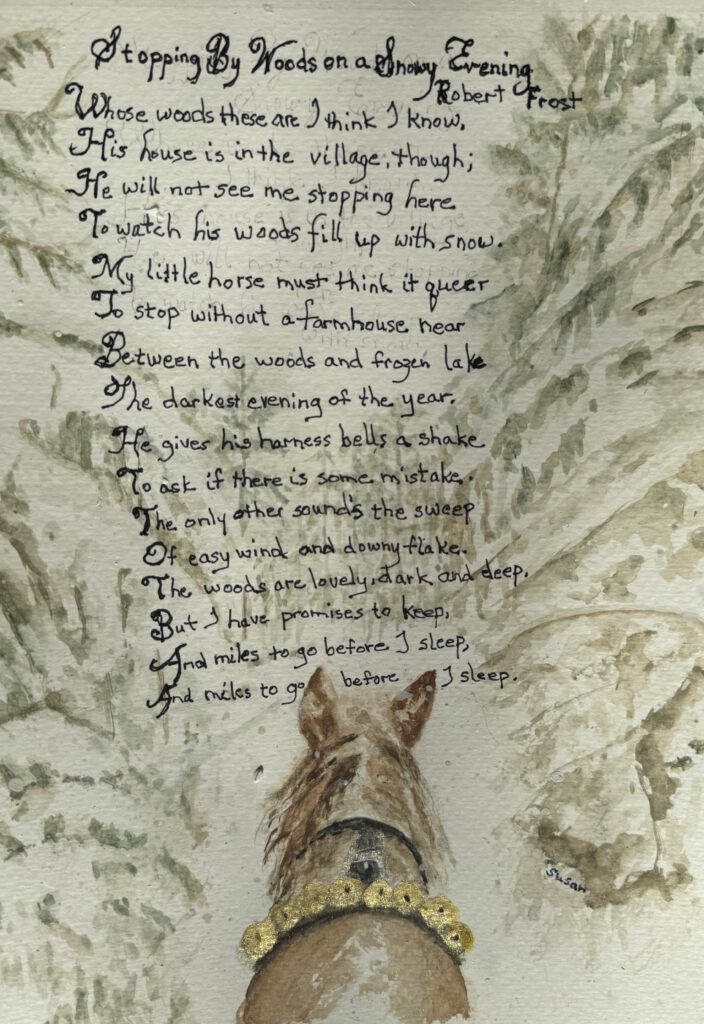Gaps and Stumbling-Blocks in Fielding: A Response to Černý, Hammond and Hudson
Bernard Harrison
Published in Connotations Vol. 3.2 (1993/94)
I
Wolfgang Iser's theory of reader-response1) evokes a mixed response in this reader. Iser leaves himself open to some telling, and apparently fundamental, objections. But in general they seem to me to be objections of the sort which, as Johnson said of Berkeley, persuade without convincing. Lothar Černý's objections seem to me to run true to form in this respect.
Černý is broadly correct, I think, that Iser's theoretical claims, far from being the a priori constructions which some upholders of inductivism in literary criticism have taken them to be,2) are founded upon a certain reading of Fielding's novels, which "do not just serve Iser as examples to illustrate the theory but actually provide the patterns or substrata on which it is based" (137). I also find myself, in common with Hammond and Hudson, wholly persuaded by Černý's central point: that Iser misses, or at any rate seriously underestimates, the extent to which the compliments Fielding pays to the "sagacity" of his readers are to be read as ironic; and that once one takes adequate account of this it becomes difficult to resist the conclusion that, whatever Fielding may have intended by these passages, it was not his intention to invite the reader to "participate" in the co-constitution of the "meaning" of [→page 148] his work in the manner envisaged by Iser. Černý's contention that Fielding's praise of his readers' sagacity is hyperbolical is supported, among other things, by passages such as the following, in which Fielding reasserts his authorial privileges by expressly blocking the "participatory" response of the reader who, like Iser, imagines he can afford to smile at what he takes to be the simplicity of Allworthy.
. . . the reader is greatly mistaken, if he conceives that Thwackum appeared to Mr. Allworthy in the same light as he doth to him in this history . . . Of readers who, from such conceits as these, condemn the wisdom or penetration of Mr. Allworthy, I shall not scruple to say, that they make a very bad and ungrateful use of that knowledge which we have communicated to them. (135)3)
I do not, then, disagree with the substance of Černý's critique of Iser. But I do have reservations concerning its scope. If Iser's readings of Fielding do indeed, as Černý suggests, provide the basic patterns which found his theory, then it might seem that if those readings can be shown to be flawed the theory must founder with them. I propose here to pre-sent some arguments for resisting this conclusion. The genesis of Iser's theory may indeed lie in his readings of Fielding, without that entailing any logical dependence of the former upon the latter. I shall argue that some of Iser's claims are detachable from any such dependence, and defensible. And I shall try to show that neglect of these parts of Iser's position, far from producing a more adequate reading of Fielding, leads to one which does him the disservice of situating him within a system of categories and conceptual distinctions from which his work in fact largely escapes: those of the very system of eighteenth-century religio-moral ideas whose influence Fielding was most concerned to combat.
Like Hammond, I find it easiest to articulate these reservations by way of an apparent digression. Accordingly, I shall begin by considering a different objection to Iser, one first raised more than a decade ago by Stanley Fish, in an article cast in the form of a review of Iser's The Act of Reading.4) I shall try to show that this objection, too, leads by way of an overly wholesale rejection of Iser's position to a reading of Fielding less adequate than Iser's. [→page 149]
II
One central claim of Iser's account of reading is that the enterprise of reading is directed towards the constitution by the reader of a her-meneutic counterpart of the text (the "aesthetic object" in Iser's terms), which may at times, although it need not, acquire a sufficient degree of precision to be identified with "the meaning of" the text.5) A second central claim is that the process by which the reader constitutes the aesthetic object proceeds mainly through the "filling-in" by the reader of "gaps" left in the text by the author. This gap-filling is not, according to Iser, a matter of arbitrary or subjective decision on the part of the reader, but is itself guided and prompted by cues and indications also planted by the author in his text.
Fish's counter-claim is that Iser's reader must be credited not merely with constituting the aesthetic object which results from his fillings in of Iserian "gaps," but with constituting the "gaps" as well. Fish's argument fastens upon the following extract from Iser's discussion of the encounter between Allworthy and Captain Blifil:
Allworthy is introduced to us as the perfect man, but he is at once brought face to face with a hypocrite, Captain Blifil, and is completely taken in by the latter's feigned piety. Clearly, then, the signifiers are not meant solely to designate perfection. On the contrary, they denote instructions to the reader to build up the signified, which represents not a quality of perfection, but in fact a vital defect, namely, Allworthy's lack of judgment. (Iser 65, Fish 7)6)
Iser's reader, in effect, locates a "gap" between the moral perfection which Fielding's narrative has earlier ascribed to Allworthy, and the latter's manifest inability to detect the hypocrisy of another when it is staring him in the face. Fish's retort is that not every reader need perceive a "gap" here, or indeed any inconsistency in Fielding's depiction of Allworthy.
. . . one can easily imagine a reader for whom perfection is inseparable from the vulnerability displayed by Allworthy and for such a reader there would be no disparity between the original description of Allworthy and his subsequent behavior. (7)
One might think such a retort vulnerable to the objection that such a reader is not, in fact, all that easy to imagine; first, because the [→page 150] proposition that moral perfection entails vulnerability to the deceits of hypocrisy is inherently implausible; and second, because so much in Tom Jones is inconsistent with the supposition that Fielding believed any such thing. In fact, such objections do no damage to Fish, since the example, inadequate as it is, serves merely to illustrate a more general point which seemingly strikes at the heart of Iser's theory of reading. In the Diacritics interview of June 1980 Iser identifies phenomenology as one of the four "frames of reference" of his theory:
4. Phenomenology, in order to set up the wandering viewpoint, the perceptual noema which is the correlate of the text in the reader's mind, the passive syntheses, and the structures of ideation as intersubjective patterns always occurring in covert processes. (73)
Iser's "aesthetic object," in other words, is conceived, in the spirit of Husserl's noemata, as a mental object, and the process of "filling in" the "gaps" in the text which constitutes it in the reader's mind as analogous to Husserlian "noetic-noematic constitution": a matter of the continuous adjustment of anticipations in the light of their fulfilment. It follows that the gaps or discontinuities which such reflection endeavours to convert into continuities are not gaps in the text qua text; the sort of gap that would be created, for instance, by deleting the second line from the last quotation above. They are gaps between the text and the noema undergoing constitution in the reader's mind. In the case of the example chosen by Fish, for instance, the supposed discrepancy is between the structure of anticipations built up in the reader by Fielding's insistence upon Allworthy's goodness and the note, allegedly both new and discordant with these expectations, struck by Allworthy's inability to see through Captain Blifil. But if Iserian "gaps" are gaps between the text and a mental object under constitution in the reader's mind, then, plainly, they will depend for their existence in part upon the particular, idiosyncratic turn of mind which a given reader happens to bring to the text, and which will from the beginning have given its own individual twist to the character of the noema which he or she has set about deriving from the text. No doubt Husserl can with some colour of plausibility ignore the possibility of variation from individual to individual in noetic-noematic constitution, but that is because he is for [→page 151] the most part attempting to describe not the responses of readers to texts but the constitution of our common perceptual world. Iser echoes Husserl in his talk of "structures of ideation as intersubjective patterns always occurring in covert processes." But plainly, any such wholesale transfer of Husserlian assumptions from the phenomenology of perception to that of reading must beg the question of how far the noemata corresponding to a given text can be expected to vary from reader to reader. Into the resulting gap between Husserl's and Iser's phenomenologies, Fish inserts his knife. If different readers may generate different noemata from the text, and if the location (which is to say, the existence) of Iserian "gaps" is relative to both the content of the text and the content of the noema generated from it by a given reader, then different readers may find different Iserian "gaps" in one and the same text. Or, as Fish puts it:
If gaps are not built into the text, but appear (or do not appear) as a consequence of particular interpretative strategies, then there is no distinction between what the text gives and what the reader supplies; he supplies every-thing. (7)
Once one sees that this, deeply plausible, point underlies the marginal implausibilities of Fish's treatment of the Allworthy / Blifil example, then, of course, those implausibilities cease to matter; since once one grasps the force of the underlying objection, one can think of plenty of other instances of contested alternative readings which plausibly illustrate it. Iser's reply, in a subsequent issue of Diacritics,7) misses the point of Fish's objection, and so fails to answer it. Iser takes Fish's "there can be no category of the 'given' if by given one means what is there before interpretation begins" (Fish 11, Iser 84) to be equivalent to the claim that the text exerts no constraint upon interpretation. Since this claim is plainly absurd, Iser imagines that an easy victory over Fish lies within his grasp:
I must confess my bewilderment that he thinks interpretation a useful activity if, as he suggests, there are no givens to interpret . . . . (84)
In fact, of course, Fish's point is that whatever constraints the text does exert over interpretation will yield a different Iserian "aesthetic object" [→page 152] for different readers unless the location of Iserian "gaps" can be regarded as established independently of, and prior to the commencement of, the constitution of the "aesthetic object," which, on Iser's own account, they plainly cannot (Fish's argument, in other words, is in the form of a reductio). It is thus simply not to the purpose for Iser to insist once again, as he goes on to do, that texts possess the power to subvert readers' interpretations,
with the reader supplying significances which are then altered by subsequent significances that have to be produced in order to bridge the gaps between (a) given elements and (b) his previous determinate interpretations. (84)
This is a claim which Fish can grant, for reasons which should now be clear, without the slightest damage to his argument. Fish has, or need have, in other words, no quarrel with Iser's account of the actual machinery of interpretation: what he denies is that Iser has any grounds for supposing that, on such an account, the results of interpretation must prove convergent from reader to reader.
III
I now propose to outline a modified theory of reading which will do the job of countering Fish's objection, and which, as we shall see, although it dispenses with the phenomenological aspects of Iser's theory, retains important elements of his position; after which I shall return to my present business with Černý et al. In line with the going practice in the present symposium I shall not initially introduce the modification I have in mind in general terms, but by way of an alternative analysis of the literary example over which Fish and Iser clash: the encounter between Allworthy and Captain Blifil.
For both Iser and Fish what is at issue in that encounter is Allworthy's "perfection": in Iser's view Allworthy "is introduced to us as the perfect man"; in reply Fish postulates a reader "for whom perfection is inseparable from the vulnerability displayed by Allworthy." "Perfect" is Iser's term: what Fielding actually says about Allworthy is that he [→page 153] possessed "a solid Understanding and a benevolent Heart" (32), and that he was "a human Being replete with Benevolence" (43). If Allworthy's encounters with the brothers Blifil are to be taken as derogating from Allworthy's "perfection," therefore, it must be either Allworthy's reputation for benevolence or his reputation for wisdom which emerges diminished from these encounters. The second suggestion, as we have already found Fielding drily observing, involves the dangerous assumption that a character in a novel can reasonably be charged with simplicity if he is taken in by another character whose motives and intentions are plain to the reader. Readers who in this way naively confuse fiction and reality as domains of comparison do indeed "make a very bad and ungrateful use of that knowledge which [an author has] communicated to them." That leaves us with Allworthy's imputed benevolence as the one remaining target of derogation. But Allworthy's recorded dealings with the Blifils do nothing to call his benevolence into question: on the contrary, they afford overwhelming confirmation of the adequacy of Fielding's initial authorial character-sketch. Both the humanity and the scholarship of Allworthy's refutation of the Captain's scriptural arguments for sending Tom to the foundlings' hospital, in order that he might be "brought up to the lowest and vilest Offices of the Commonwealth" (79) are impressive; for instance, Allworthy's earlier reply to Dr. Blifil's offices on behalf of his brother, while it impresses the corrupt Doctor as the reply of a fool ("it cost him some Pains to prevent now and then a small Discomposure of his Muscles" [72]), in fact displays an entirely worthy desire not to stand in the way of his sister's happiness, together with a decent unwillingness to quarrel with a man and a family recommended to his good graces by having become the objects of his sister's choice, and a desire to minimise the gravity of the Captain's provocations to that end.
If "perfection" comprises the union of moral and intellectual virtue, then, Allworthy displays both in full measure. There is no trace in Fielding's text, so far as I can see, either of the initially good-appearing but ultimately flawed character of Iser's reading, or of Fish's virtuous but vulnerable innocent whose vulnerability is inseparable from his virtue. And yet, surely, an Iserian might object, this can't be quite right. Surely there is plenty in Tom Jones to suggest that Fielding has [→page 154] reservations about Allworthy's virtue? For one thing, nearly all of Allworthy's interventions in the plot not only prove barren of good consequences but smooth the path of the wicked as much as they entangle the footsteps of the good. This is true, and no doubt the temptation for the reader is to attempt to trace back the causal origins of these seemingly untoward outcomes to some defect of virtue, real or imagined, in Allworthy's character. I think, though, that we should resist this temptation, and instead dwell for a moment on the set of everyday assumptions about goodness and the nature of virtue which expose us to it.
It is now, as it was in Fielding's day, commonplace to think of goodness, or virtue, as a condition of mind or spirit opposed in principle to, and cultivated primarily by turning away from, the appetites and affections which link us to our bodily and social life in this world. One set of roots of this account of moral psychology lies, no doubt, in Plato's distinction between the philosopher, whose virtues are held stable by actual knowledge of the great Forms of the virtues, including ultimately the Form of the Good, the man of honour, whose virtue is real but unstable, since founded in opinion rather than knowledge, and the man of appetite whose ultimate type is the bottomlessly corrupt Despot of Republic 562a-576b. Another set is to be found in Paul's and Augustine's insistence upon the distinction between the Natural Man and the Spiritual Man reborn in Christ. By the eighteenth century both these compelling distinctions have fused into the distinction between Principle and Appetite, or Reason and Passion. That distinction sets the terms of all philosophical discussion of the nature of morality throughout the century. Whether defended by Price, Wollaston or Shaftesbury, ironically inverted by Hume, or transformed by Kant, thirty years after Fielding's death, into the yet more august distinction between Autonomy and Heteronomy, it informs all serious debate. The voyages of the philosophers set out and return across the seas swelling between its poles. It exercised such dominance over acute minds because it was presumed to exhaust the options open to us as moral beings. Either we must be men of Principle, in which case we must master and subdue Appetite, or else we must be men of Appetite, in which case we must forswear Principle. Further, if Principle and Appetite really are the grand heads [→page 155] which conjointly divide and exhaust the class of motives, the question must be asked, where the affections of individual, family and social relationship are to be placed within this austere schema. And once we accept the general correctness of such a division it is hard to see how we can class them, save under Appetite: amiable appetites, no doubt, like the appetite for music, or for fun and frolic, but appetites nonetheless. Such a conclusion will seem natural both to the Christian attracted by Pauline spirituality, with its rejection of the wordly and "natural" aspects of our nature, to the Calvinist suspicious of the latitudinarianism to which Fielding leaned in theology,8) and to rationalist admirers of Roman stoicism and ancient virtue.
It is worth remembering, now, that Tom Jones impressed hostile critics in its day precisely as a speciously "moral" defence of Appetite against Principle. Thus Sir John Hawkins:
. . . a book seemingly intended to sap the foundations of that morality which it is the duty of parents and instructors to inculcate in the minds of young people, by teaching that virtue upon principle is imposture, that generous qualities alone constitute true worth, and that a young man may love and be loved, and at the same time associate with loose women. His morality, in respect that it resolves virtue into good affections, in contradiction to moral obligation and a sense of duty, is that of Lord Shaftesbury vulgarised, and is a system of excellent use in palliating the vices most injurious to society.9)
Hawkins' contempt is clearly sustained by the conviction that Fielding's book cannot deal in anything more than ingenious sophism, since it contests self-evident verities. Let us, though, set this conviction on one side for a moment, and entertain, if only for the sake of argument, the possibility that Hawkins might be mistaken: that Fielding's book might be capable of presenting an intellectually serious challenge to the values Hawkins takes to be beyond question. Hawkins believes that we must choose either a life of Principle, forswearing Appetite, or a life of Appetite, forswearing Principle, and that the latter choice involves the renunciation of morality tout court. Such a belief rests upon three subordinate, and connected, claims. The first is that the life of Principle and that of Appetite are exhaustive alternatives. The second is that the Life of Principle is coextensive with the Moral Life per se. The third is [→page 156] that Principle is the only motive capable of restraining Appetite from leading us to act with utter disregard for the welfare of others.
All three claims are in principle open to question. Two familiar objections to the second are worth noting here. The first is that it opens a curious breach between the achievement of virtue and the promotion of good. As Alasdair MacIntyre puts it, à propos of Kant's version of the morality of Principle,
. . . if the rules of morality are rational they must be the same for all beings . . . and if the rules of morality are binding on all rational beings, then the contingent ability of such beings to carry them out must be unimportant--what is important is their will to carry them out.10)
The second, due to Bernard Williams, is that it over-emphasises the importance of what it is a moral agent's duty to do at the expense of underemphasising the importance of what a moral agent should feel; and that that imbalance of emphasis may in turn, since feelings are in part cognitive states, lead us to neglect certain possibilities of impairment of the capacity to judge soundly in moral matters; both failings, as Williams observes, being a consequence of the failure of the morality of Principle to recognise that
No human characteristic which is relevant to degrees of moral esteem can escape being an empirical characteristic, subject to empirical conditions, psychological history and individual variation, whether it be sensitivity, persistence, imaginativeness, intelligence, good sense; or sympathetic feeling; or strength of will.11)
These objections suggest the possibility of a rather disquieting version of the Man (or Woman) of Principle: one who succeeds in preserving a kind of inner moral purity, but at the cost of a morally dangerous and cognitively disabling lack of interest in the empirical complexities of actual cases (a failure of interest encouraged in such a person and placed beyond the reach of his or her powers of self-examination by the emotional and relational impoverishment occasioned by the struggle against Appetite); such a Man (or Woman) of Principle would suffer in consequence from a diminished capacity to foresee and direct the worldly consequences of his or her actions. [→page 157]
Those who believe, as Hawkins plainly did, that morality is identical with Principle have a reply open to them, of course. It is that the fruits by which a life of inward moral purity is to be judged are not those valued by utilitarianism, or those manifested in warm affections, but the commitments to inward purity engendered in others by the example of the Man--or Woman--of Principle. Richardson lovingly records just such a contagion of virtue in the second part of Pamela, with Mr B., his family and the entire neighbourhood finding redemption through the force of Pamela's example, and although the volume makes a lame, stilted and profoundly implausible companion to the first, one can see what he is getting at.
At least one function of Allworthy's character within the moral argument which, as Empson believed,12) Tom Jones is meant to advance is to provide, it seems to me, a counterweight to Richardson's Puritan optimism concerning the efficacy of inward virtue in transforming the human world. We ourselves tend to believe, following the maxim "By their fruits shall ye know them," that inner virtue must be as recognisable by its wholesome fruits as inner vice by its scabbed and emetic ones. Allworthy messes up this tidy picture by offering us a rather plausible example of a transparently virtuous man whose "fruits" are quite often sour or rotten. What sunders virtue from its harvest in Allworthy's case, I take it, is his detachment. His benevolence is beyond question, his principles are of the highest and most selfless character; and yet he appears to miss half of what is going on at Paradise Hall. He is, as we say, "unworldly," and his unworldliness manifests itself, at least in part, precisely by a certain culpable lack of interest in those to whom he is most nearly related. His attitude towards his sister is one of benevolent concern, and yet he is not close enough to her, though living in the same house, to know or guess anything about her relationships with men. Perhaps this is because he is, as Fielding expressly intervenes to tell us, Squire Western to the contrary, a prude with very little experience of women. His remoteness, though, is not merely exercised towards the female sex. He characteristically relies for the most part on intermediaries for his knowledge of his two wards: first the tutors Thwackum and Square; later, where Tom is concerned, on Blifil, whose stance of disin-terested virtue agrees, at least in externals, with his own. On the few [→page 158] occasions when he pursues an enquiry in person, as when he rescues Tom from Thwackum and questions him directly about the sale of his horse (142-43), he succeeds with perfect ease in establishing the truth; but such occasions are rare. What is wrong with Allworthy, in short, is not, pace Iser, that he is wanting in "perfection," or that we must balance the high score due him for benevolence with a low one for penetration. His problem is the very unworldliness which ought, were we to accept the Platonic and Puritan association of moral virtue with a turning-away from "worldliness," to be the keystone of the arch of his virtue. The Pauline enterprise of putting away worldly things in order to cleave to a disinterested inward pursuit of moral principle has produced in Allworthy an almost hermetic Innerlichkeit which is difficult at times to distinguish from simple lack of interest in the actual characters and machinations of those around him; from whom he is himself largely insulated by rank and wealth. His entirely genuine benevolence has modulated into an austere meting-out of good and evil according to an ideal internal yardstick. And he is untroubled, for the most part, by any impulse to verify the accuracy of that yardstick against the shifting and obscure contingencies of the world. For since nothing in his nature draws him into engagement with the world, as distinct from judgement upon it, nothing in his nature exposes him to the experience of finding his wishes, values and assumptions confounded or led into aporia by the unexpected, at least until the eventual dénouement of Mrs. Waters' and Lawyer Dowling's disclosures lets in an irresistable flood of light. His failure up to that point to grasp the need for any mediation between the hermetic realm of inner virtue and the ambiguous public world of society and other individuals is exemplified, inter alia, by the bland disregard for the requirements of the law which he shows in committing Molly Seagrim to the House of Correction; a lapse which Fielding is careful to note with telling irony:
I question . . . whether his Conduct was strictly regular.13) However, as his Intention was truly upright, he ought to be excused in foro conscientiae, since so many arbitrary acts are daily committed by Magistrates, who have not this Excuse to plead for them. (192)
[→page 159]Fielding's point, I take it, is that the morality of the mundane and public world represented by the English Common Law is not in this case trumped by the morality of the inward and ideal: that what will pass muster in the Court of Conscience may, but both legally and morally should not, pass muster in the court of an English Justice of the Peace.If the possibilities which Fielding has imaginatively realised in Allworthy call into question the second of the three claims I listed a paragraph or two back, those embodied in Tom call into question the third: the claim that only Principle can restrain the pull of Appetite towards selfish disregard for others' interests. If the standard eighteenth-century distinction between Principle and Appetite is as exhaustive as it can be made to appear, then, as Hawkins soundly concludes, Fielding's "Good Heart," that "kind and benevolent Disposition, which is gratified by contributing to the Happiness of others" (270), is just one more appe-tite and as such undeserving of the moral credit due to principled action. The obvious counter to this, of course, is the thought that an anxious concern for the welfare of another can often force one to sacrifice other, more self-regarding, desires and interests.14) This is exactly how Goodness of Heart operates in Tom's case. It is Tom's inability to bear the sight of Black George's family starving which compels him to sell first his little horse and then his Bible, despite the fact that the first sale not only involves parting from a beloved animal but almost earns him a whipping, while the latter sale gives Blifil his first real victory in his long campaign to dislodge Tom from Allworthy's affections. Later, after his banishment from Paradise Hall, his love for Sophia manifests itself in just such another moral tussle between selfish and unselfish appetites.
The Thoughts of leaving her almost rent his heart asunder; but the Consideration of reducing her to Ruin and Beggary still racked him, if possible, more . . . and thus Honour at last backed with Despair, with Gratitude to his Benefactor, and with real Love to his Mistress, got the better of burning Desire, and he resolved rather to quit Sophia, than pursue her to her Ruin. (312)
But if the Good Heart can constrain selfish desire in this way, then, while we may agree with Hawkins that Goodness of Heart is one more appetite, it is clearly not just, or merely, an appetite. It is in fact what those who think like Hawkins regard as an oxymoron: an intrinsically [→page 160] morally virtuous appetite. But if the notion of an intrinsically virtuous appetite is not necessarily oxymoronic, doesn't the whole Pauline distinction between the spiritual and the worldly, together with its philosophical counterpart, the distinction between Reason and Appetite, begin to totter? And, correlatively, don't the outlines of an entirely different manner of conceptually dividing up the territory of the moral life begin, in a shadowy sort of way, to loom into view? According to this, broadly latitudinarian, view, the moral life is not centred in a struggle between Appetite per se and Principle, wordliness and spirituality, but between some appetites and other appetites. Such a view, in a common and current philosophical sense of the term, naturalises the moral life. It treats the moral agent not as a being who has made an ascent from the natural world into a "pure," non-natural realm of Kantian rationality or Pauline spirituality, but as one to whom the very idea of seeking to become virtuous by making such an ascent becomes itself an oxymoron, since such an ascent, involving as it does the rejection of appetite per se, must involve bidding farewell to the very appetites, those of the Good Heart, which make the good man. Fielding's moral agent thus remains situated in the everyday world of Williams' anti-Kantian argument, ineluctably cast as the bearer of appetites with as much of good as ill in them. For such an agent, what is required for mature goodness is not the wholesale cautery of appetite, but the establishment of order and priority among the appetites of the good man: an order which can only be achieved through long experience of the complexities of concrete existence leading to the formation of what Fielding terms "prudence." The truly good man is, indeed, for Fielding, "worldly"; and part of the job Fielding has set himself as a novelist is to transvalue the notion of worldliness by turning the word "prudence," with its connotations of worldly involvement and worldly knowledge, into a term of unqualified moral commendation: a name for the rather impressive combination of self-committing goodness of heart, sound judgment and self-control into which Tom has matured by the end of the novel.
[→page 161]
IV
Back, now, to Fish's critique of Iser, and my proposed defence. In the light of the above analysis I want to suggest that reading a literary text is indeed, as Iser suggests, a matter of encountering tensions between text and expectation, but that the expectations which the text challenges are not ones which the reader has acquired in the process of constituting, as he pursues his reading, a hermeneutic counterpart of that text. They are, rather, tensions between the text and expectations which the reader brings with him to the text, and which he has acquired, not necessarily in a conscious or reflective manner, from many previous texts, and ultimately from the vast substratum of casual assumptions encoded in the language to whose community of speakers he belongs. Some of our assumptions about the meanings and implications of the common terms we use are impossible to question because if we question them we lose our grip on the concepts they enshrine. The conceptually unquestionable in this sense, however, may occupy a smaller domain than we are inclined to suppose. In the present instance, all that seems to be needed, if we are to retain enough of a common understanding of the term "good" to deploy the term in discourse is that the good, however we go on to characterise it, should be something which in some sense ought to obtain. One extensive tendency of thought and feeling in the eighteenth century, however, to which opponents of Fielding's vision such as Hawkins belong, wants, in effect, to claim considerably more than this. It wants to claim that a whole collection of conceptual oppositions line up with one another in something like the following way:
Good -- Evil
Spirituality -- Worldliness
Reason -- Passion
Principle -- Appetite
Morality -- The Amoral
To those who most feel the undoubted power of the systems of thought and feeling which suggest such an alignment of conceptual oppositions, the alignment itself may appear to have the force of a conceptual necessity. It may be felt, that is to say, as constraining natural possibility. [→page 162] But, unless the proposed alignment can be shown a priori to rest upon purely logical or conceptual considerations (and it is not easy to see how something like that could be demonstrated a priori), it remains open, to either the philosopher or the novelist, to contest its rule by demonstrating that familiar features of natural possibility permit the construction of counter-examples which displace and call into question the contrasts and associations to which it ascribes universal validity. This, it seems to me, is exactly what Fielding has done in the present case. He has constructed, with extreme detail and verisimilitude, an array of cases in which Appetite wields the sceptre of Principle, passion turns out to lie at the heart of goodness, morality turns out to demand worldliness (in a certain sense) of us, and unwordliness (in a certain sense) stands under moral condemnation. All this may indeed stagger expectation in the reader; but if it does, the expectations it staggers are not ones introduced for the first time to the reader through his hermeneutic struggles with the text, but ones insinuated by presumptions, fore-understandings,15) which while they are not, in fact, essential to the preservation of a common understanding of terms in the language in which the text is written,16) are sufficiently engrained and habitual within the cultural milieu addressed by the text as to seem so.
The present suggestion in effect displaces the space of interaction of author and reader from that of a noema or "aesthetic object" constituted by the author to that of the public language which author and reader share. Iser is half right and half wrong to say that
There is no common code--at best one could say that a common code may arise in the process [of reading].17)
Certainly, if I am right, a thoughtful reader of Fielding would tend to find himself envisaging what one might loosely call "new meanings" for crucial terms in the language of the text--"goodness," for in-stance--through the power of the text to displace and remake the systems of metonymies, backed by miscellaneous theory, which form a penumbra of associations around each such term. But this process can only proceed because author and reader share, at the outset, access to the commonplace, linguistically-given systems of association and diacritical contrast upon which the text proceeds to exert its subversive pressures.18)
[→page 163]Of course, if we drop Iser's noema-like "aesthetic objects" from our theory of reading, then we have to drop Iser's "gaps" as well; since an Iserian "gap" is, precisely, a gap or discrepancy between text and "aesthetic object." But now Fish's objection to Iser collapses in its turn. Fish's objection, recall, was that, since Iserian gaps are locatable only relative to a given aesthetic object, and since differently constituted readers will constitute, from the outset, different aesthetic objects, they will also locate the gaps in a given text at different points. The present suggestion is that what the reader encounters in the text are not gaps but, as it were, hermeneutic stumbling-blocks: points in the text at which the commonplace assumptions or fore-understandings about the relationships of everyday notions which he brings with him to the text are challenged and brought under pressure. It seems clear, now, that whether a story constitutes a telling counter-example to some set of commonplace assumptions or other depends entirely upon the intrinsic character of the story and that of the set of assumptions. The status of counter-example to a given set of assumptions, that is, is not one which we can confer upon just any old story provided we apply to it, to use terminology elsewhere developed by Fish,19) the right sort of "strategy" for "producing" the "formal features of the text." It is no more possible by appropriate choice of hermeneutic strategy to make Tom Jones into a text friendly to Sir John Hawkins' values and the theoretical assumptions upon which they rest than it is possible by the adoption of some ingenious style of inter-pretation to turn Hume's Dialogues Concerning Natural Religion into a text friendly to Deism. Of course, some readers may not perceive the threat to those values, even if they share them; and even if they perceive the threat may shirk the labour of confronting it and thinking out its implications for their own point of view;20) but their failure to do either of these things has not the slightest tendency to show that the threat is not intrinsically "there" in the text. In the case of Allworthy, Fish can deal with Iser's suggestion, that there is a "gap" between Fielding's moral praise of Allworthy and the latter's failure to detect hypocrisy, simply by postulating a reader for whom inability to detect hypocrisy is a part of moral virtue. The status of Allworthy as a stumbling-block in the path of the common assumption that principle, even if unaccompanied by warm affections, is necessarily [→page 164] productive of good, on the other hand, cannot be made to evaporate in that way. True, one might fail to notice the havoc wrought, despite his excellent principles, by Allworthy's inward remoteness from and indifference to the persons and affairs over which he exercises judgment (a remoteness and indifference not all that far at times from those of Fielding's other exemplary world-despiser, the Man of the Hill). But a reader insensitive to such things would just be a bad reader.
In an essay republished in Prospecting,21) Iser moves some way towards the concerns I have been exploring here. He suggests there that Fielding's writing offers the reader a standpoint from which he can view "the prevailing norms of eighteenth century thought systems and social systems" (37) not as "social regulators" (38), but from the point of view of "the amount of human experience which they suppress because, as rigid principles, they cannot tolerate any modifications" (39). This is certainly to grant in part the power of the text to displace assumptions implicit in the reader's customary point of view; but I wish to go further, and grant to the text not merely the power to focus on what "norms" marginalise, but also the capacity to bring into serious question the adequacy and exhaustiveness of the underlying conceptual oppositions which sustain the "norms" in question, and by so doing sustain also their power to marginalise.
This further step bears on another of Iser's convictions, which he shares with John Preston, and which I share: that reading is a sort of conversation between reader and author, in which the reader enters into a real communication with the mind of a writer who may be many centuries dead. Iser, rightly, raises (32) Socrates' objection to such claims:22) one cannot question a text as one can another speaker. Phaedrus in Plato's dialogue accepts this, but to my mind should have replied that while that is true, it is also true that a text can question its readers. That is of course part of what Iser is suggesting when he says that texts confront readers with gaps, the unspoken question from the text being "How is the gap to be filled?" In my view texts can pose questions to the reader which are, potentially, at least, more disturbing to the latter in that they are questions, not, or not just, about the coherence of the text he is reading, but about the coherence of his own extra-textual beliefs and assumptions. Paradoxically, we feel the "living presence" of an author [→page 165] haunting his work to the extent that we grasp that work not as an utterance but as a contrivance, in which the workings of a mind shrewder than our own is manifest in the ingenuity of the traps he has set in advance for us. Such shocks of recognition and dialectical engagement, which go beyond the text and its systems of textually constituted author-surrogates, can arise in many ways. Leona Toker 23) suggests another in connection with her exploration of the differences between a first reading of Tom Jones and a second reading in which the reader is necessarily alive to the tactical reticences by which, on his first reading, Fielding managed to keep him in the dark about the machinery of the plot.
He [Fielding] turns Allworthy from an objective tool of justice into a target audience that is misled by its own preconceptions. [And] . . . in more ways than one "Fielding" does the same to the reader. (188)
V
It is time for me to return, in conclusion, to Černý's reservations concerning Iser's reading of Fielding; and I hope, to make good my initial promise that certain broad themes in Iser's theory of reading may prove a more fruitful guide to the reading of Fielding than the scepticism of my three co-symposiasts. For a start, if what differentiates intelligent from thoughtless reading is sensitivity not to "gaps" but to stumblingblocks in a text, then we can agree with Černý without wholly abandoning the insights to be derived from reading Iser; since in that case we cease to be under any particular theoretical pressure to read Fielding's praise of his readers' perspicacity "straight." We can take them for what, I believe, they are: not encouragements to the reader and invitations to him to join in a co-operative enterprise of noematic constitution, but ironic warnings to him that the paths his feet are to travel have not been made smooth for him: that they abound in rough places where he must be ever on his guard against being misled by his own assumptions and fore-understandings.
[→page 166]Iser's account of reading is valuable, it seems to me, because for one thing it retains, against the current of the times, the capacity to render theoretically intelligible the notion of the text as a vehicle of communication between author and reader conceived as individual persons. What enables it to do so is Iser's obstinate sense that reading changes us: that we do not delude ourselves when we pick up a book not, in the spirit of Fish's neo-pragmatism, to bend it to the uses of a hermeneutic community, nor to pass hand-in-hand in happy collusion with the author into a paper world which will confirm instead of challenging our day dreams (something earnest-minded people do with agit-prop literature and television "drama-documentaries" at least as much as the unearnest do with cheap novels), but accepting the risk that in what we are about to read we may hear another voice than our own, and that what it says may introduce into our heads something which we may then find it difficult to expel from them, and which may change our inward landscape. Iser articulates this conviction, naturally enough, in terms of the power of the text to defeat readerly expectations. And Husserl's phenomenology offers a conceptual language in which to cast such in-vestigations. Unfortunately, however, it is a language whose metaphysical commitments, to consciousness, presence, the transcendental, etc., open it to one form or another, including Fish's, of the objection that it ignores the "textuality" of the text. What I hope to have done here is to suggest a way in which Iser could drop his methodological attachment to Husserl-style phenomenology but retain access to an austerely "textual" version of his position capable of sustaining its most important claims about the nature of the reading process.
For these reasons I find myself agreeing with Brean Hammond that "Fielding's triumph is a rhetorical one, and that the reader need not stray beyond the pale of words to get the full effect" (74). And I agree with him that, viewed simply from that point of view, the accounts both Iser and Černý offer "are intentionalist accounts, both are liberal humanist accounts, both are thematisations." I differ from him, however, on the question of what a more "radical" reading might amount to. Hammond seems to be, in Frank Kermode's useful phrase,24) a constitutional "insider": for him the object of a "radical reading" appears to be the hyper-Barthesian one of breaking open the text by reading against its [→page 167] flow, not in pursuit of the Barthesian goal of exhibiting the text as an empty play of codes but in pursuit of "knowledge already contained, on some level, within the text itself" (78). For me, as for Iser, what a properly penetrating reading involves is not the accession by a reader sufficiently active in dismantling the text to some body of arcane knowledge, but rather an ongoing sensitivity on the reader's part to the implications of the systematic and structured manner in which expectations nourished by his own assumptions and fore-understandings are being frustrated and dismantled by the text.
This awareness on Iser's part of reading as a process of successive frustration and reformulation of expectations is, it seems to me, the lustiest of the babies which Černý, in company with Hudson and Hammond, throws out with the bathwater of Iser's insensitivity to the ironies implicit in Fielding's ambiguous compliments to the reader. Černý, having made what to my mind is the absolutely sound point that "Fielding . . . is less interested in stimulating the reader to fill in gaps than in making him aware of the pitfalls of language" (155) takes this to indicate in Fielding "a certain distrust of words, but above all a trust in an indirect communication based on empathy." Such an account revives an old charge against Fielding, of moral sophistry insinuated by way of sentimental collusion with the reader; or as Hudson puts it, that "he counted on the reader's sentimental responses to make sense of the novel" (82). And I am in general agreement with Hudson that the fate of those in Tom Jones, and elsewhere in Fielding's oeuvre, who rest their fate upon appeals to the sentimental goodness of others demonstrates too great a scepticism on Fielding's part for that to be his chosen method as a novelist. Hudson's alternative account, however, seems to me to offer little advance on Černý's. In place of the sentimental Fielding of traditional dismissive criticism, who trusts that his reader will sigh in tune with him, Hudson offers a Fielding implausibly at one with Mandeville in his methods, who "appeals more often to our vanity than to our benevolence and, while giving us the impression that we are feeling and judging on our own, is usually manipulating our reactions" (83). My own sense of the matter, one which I share with Toker, and with Empson, who thought that "the feeling that he is proving a case is what gives Tom Jones its radiance," and that the case [→page 168] "builds up like Euclid,"25) is that while Fielding is indeed "manipulating our reactions," he does so in ways which appeal more to our experience of the world and our ability to perceive the limits of plausible conceptual contrasts than to our vanity. My further suggestion is that the "building-up" of the Empsonian "case" proceeds by the building-up within the text of a system of stumbling-blocks which, in a systematic and coordinated way, obstruct the free passage of the reader's habitual assumptions, bringing him up short in ways which confront him, if he is a sufficiently intelligent and candid reader, with a genuine and substantial challenge to his usual ways of thinking.
Thinking of the reader's relation to the novel as one of sentimental collusion or of blind susceptibility to rhetorical manipulation, is in either case, I think, liable to lead one into errors concerning the actual content of Tom Jones. Černý is kind enough to cite an earlier work of my own"26) in support of his ascription to Fielding of dissent even from a sentimental rationalist like Shaftesbury, on the ground that (Černý's words) "practical goodness can hardly be grounded on moral rationalism" (149). This is fair enough as far as it goes. But it fails to address the important--indeed crucial--issue of the nature of Fielding's positive view of the relationship between reason and sentiment. Černý, like me, wants to resist Hawkins' time-honoured verdict that Fielding's morality "resolves virtue into good affections, in contradiction to moral obligation and a sense of duty." In Černý's words, "Fielding is surely not putting forward an ideal of mere irrationality and sentimentality." Černý's positive account, however, is that "[Fielding's] exemplary characters are guided by reason, which, though not an end in itself, is necessary as a means to an end" (156). This won't quite do, it seems to me. It saddles Fielding with something along the lines of Hume's reduction of morality to sentiment: sentiment is the source of all our ends, and the role of reason is reduced to the purely instrumental one of teaching us how best to realise in practise the ends which our sentiments proffer for our pursuit. Now, Fielding does, clearly, think something like this: he thinks that Appetite, including the appetite for the good of others which he calls "Goodness of Heart" is the source of all our ends; and he thinks that reason, which he tends to call "Prudence," does have the role of guiding our steps among the pitfalls of the world, rather than that of dictating our ends (which is [→page 169] what, in effect, young Blifil and his father allow it to do). But similarity is not identity. Tom Jones may advance views akin in certain leading respects to those published ten years earlier by the young Hume in the Treatise of Human Nature; but for all that, I want to say, Fielding is not Hume. The main difference it seems to me, is that Fielding has a much richer notion of sentiment than Hume. Hume's "cool passions" of moral approbation and disapprobation have no essential connection with relationship. They are instilled in the mind by a variety of influences, ranging from self-love to parental training and political exhortation, which have in common only that they are by their nature insusceptible of rational correction. The deep reason for this last feature of Hume's theory of morals is that reason has to do with truth and the correction of belief, whereas a sentiment, as Hume defines the term, has nothing to do with either: its nature is solely to motivate to action. That being so, one Humian sentiment cannot function, either, as a source of quasi-rational criticism of another. In Hume's theory one sentiment may conquer another because it is felt with greater urgency; what it cannot do is to give someone who feels both anything worth calling a reason for turning away from the other. And this seems right, at least in Hume's terms. A competition between Hume's sentiments is, when it comes down to it, a competition between two desires of one and the same person, and surely neither one of these desires, nor any external consideration, can give that person a reason for choosing to give the implementation of one of them priority over the implementation of the other. It is simply a matter of which desire is strongest, of what the person "wants most."
One great merit of Fielding, it seems to me, is to have seen, that, even if we do owe all our ends to Appetite and none to Reason, our situation when it comes to adjudicating between those ends is more complex than Hume's persuasively simple philosophical schema suggests. Fielding sees that to desire the good of another, whether as lover, as friend, or simply as fellow human being, is not simply to admit another entry into the lexicon of desires originating within oneself. To be afflicted with Fielding's Good Heart is to take seriously the status of the Other as a second, independent, source of needs and desires. If a Good Hearted person turns away from the achievement of his own ends in order to [→page 170] give precedence to those of another, in other words, it is not because those ends are more attractive to him as ends (how could they be?--they are somebody else's ends), but because the thought of the other's failing to achieve them is obnoxious to him. For Hume the object of an affection is always an end--a state to be realised--for Fielding it is sometimes a person. That is why the Good Heart, although an appetite, can wield the power, reserved for Reason in rationalist philosophies of morals, to make its possessor relinquish the satisfaction of his or her internally generated desires where that would conflict with the good of another: as Tom does when his perception of Sophia's needs compels him to turn away from his desire to involve her in his downfall.
To see this is to see, as I have been arguing throughout this response, that what Fielding is doing cannot be grasped within the terms of the standard eighteenth-century distinction between Reason and Sentiment, Principle and Appetite. My objection to Černý's tendency to assimilate Fielding's moral outlook to Hume's, correct as that is up to a point, is, as I indicated at the outset, that it does tend to site Fielding within the terms of a distinction which, ultimately, he escapes. Fielding's "Prudence," as manifested at the end of the book by the redeemed Tom, is not, I want to suggest, that coldest of all parodies of morality, sentimentality guided by instrumental rationality. Rather, it is that very different thing, knowledge of the world, and involvement in it, animated and informed by good affections. Tom has become the polar opposite of the Man of the Hill, while Allworthy remains uneasily poised somewhere in between.
There remain Černý's suggestions concerning Locke and Fielding's "New Vein of Knowledge": Contrast. I am not as convinced as Černý that Fielding is here (212) being ironic. One central point of the plot, after all, is to deepen our sense of individual characters through their contrasts with one another. Thus the contrast with the Blifils enables us to focus more sharply on what it is that makes Allworthy a genuine and within limits admirable man of principle; while the moral weight of Tom's version of the Man of Appetite appears more sharply by contrast with the version represented by Western. Gilbert Ryle in an insightful article 27) argues that Jane Austen pursues just such a method; and suggests plausibly that she got it from Fielding, with whom it [→page 171] originated. Possibly, then, Fielding is not poking fun at Locke here, but simply boasting, as he not infrequently does.
In more general terms also I remain unpersuaded that Locke was a central target of Fielding's anti-rationalism. Moral rationalism in the first half of the eighteenth century in England was closely bound up with Deism. Fielding, like Swift, disliked the Deists, and there can be little doubt that he is guying them in Square, as Swift, perhaps, guys them in the Houyhnhnms. Equally certainly Locke was perceived by Pope, and no doubt by others, as the arch-partisan of Deism, as witness a suppressed couplet of the "Essay on Man":
What partly pleases, totally will shock:
I question much if Toland would be Locke.28)
But such a link between Fielding and Locke might not be close enough for Černý.
University of Utah
Salt Lake City
































 Ring out, wild bells, to the wild sky,
Ring out, wild bells, to the wild sky,


















